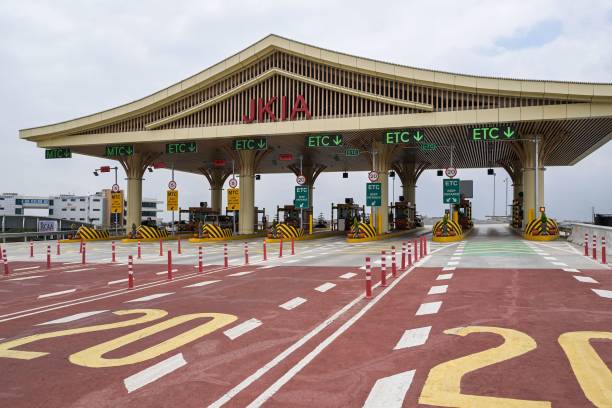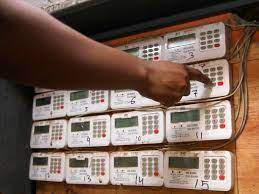Kenyans lament extra ‘convenience’ fee charged on Nairobi Expressway

The most a person driving a saloon car is required to pay to use the road is Sh500 from one entry point to a particular exit
In the busy streets of Nairobi, at times it becomes increasingly frustrating trying to get to your planned destination on time, mainly due to overwhelming daily traffic congestion in the city’s major roads.
Among them is Mombasa Road, which connects the central business district with several residential estates and the country’s largest tourist entry point, the Jomo Kenyatta International Airport.
More To Read
- Moja Expressway dismisses fake notice on closure of section of expressway ahead of Gachagua arrival
- KeNHA explains why US firm's Nairobi-Mombasa Expressway proposal was rejected
- Nairobi Expressway section to close Sunday for Syokimau overpass construction
- Nairobi Expressway, Waiyaki Way among major roads to close from Saturday for city marathon
- Nairobi Expressway section from James Gichuru Road to close from Friday for maintenance works
- Impressive April Fools' Day pranks that some Kenyans fell for
In July, then Roads Cabinet Secretary Kipchumba Murkomen noted that Nairobi loses approximately Sh120 billion per year due to traffic congestion.
The building of the Nairobi Expressway was among the initiatives the state tapped to curb the gridlock concern, specifically along Mombasa Road, through to a section of Waiyaki Way.
It was designed to alleviate congestion along the route by providing a high-speed, dedicated route for commuters and freight, thereby reducing travel times and easing bottlenecks.
To many motorists, the tolled road came as an option for convenience at a minimum cost of Sh170, as per the new rates.
The highest amount a person driving a saloon car is required to pay to use the road is Sh500 from one entry point to a particular exit.
Paying to use the road could arguably be termed as the cost of convenience. However, some road users have disclosed to
The Eastleigh Voice that there is an additional fee that is being charged on top of the normal rates — the cost of distance covered plus transaction cost — when one pays using digital means.
“Each time I ask for an explanation behind the extra deduction from my wallet when I pay using mobile money, I’m hit by a no-word response, only a look, or the word ‘convenience fee’,” says one of the motorists who declined to be named.
“Is this not paying for the same thing twice? And what was the basis for coming up with such a charge? he wonders.
Although not a frequent user of the road, he narrates that in one instance recently, he was required to pay Sh410 but upon final deduction from his wallet, Sh417 was paid to Moja Expressway, the firm managing the road.
“The extra charge is minus the transaction fee which goes to the telco under which the payment is done. Therefore, where is that charge coming from?”
Payment details from the motorist seen by The Eastleigh Voice also show two other instances when he paid Sh257 and Sh337. In all the trips he made leading to the aforementioned payments, he says the reflected amount he was required to pay was Sh250 and Sh330, respectively.
“I honestly do not know the basis of the additional Sh7 which is added to my fee each time I’m paying an amount not more than Sh500,” he says.
A woman who uses the road more frequently recounts says she has been wondering why she is being charged an extra Sh7 on payments less than Sh500 and Sh10 on any amount more than Sh500.
“How has the management of the road reached this charge, I have never heard of any formal communication regarding the extra fee as it is a requirement by law that the changes be communicated through a gazette notice,” she says.
Her two sample payment messages show amounts of Sh1,010 and Sh507 paid to Moja Expressway on two different occasions.
“When the charges were being calculated for my planned entry point and exits, there were no Sh1,010 and Sh507, they were Sh1,000 and Sh500. then how come at the payment stage, the extra Sh10 and Sh7 are being deducted from my wallet?” she questions.
Notably, the two noted that when one opts to pay using cash, the extra charge is not factored in, raising more unanswered questions about the additional charge.
Efforts to reach Moja Expressway on the matter were futile as they had not commented on the matter by the time of going to press.
The legislative framework governing road tolling in Kenya is enshrined within a mosaic of statutes, including the Public Roads Toll Act (Cap 407) and the Public Finance Management Act, 2012 (No. 18 of 2012).
These statutes endow the government with the prerogative to designate toll roads, establish toll collection mechanisms, and administer toll revenue.
Supplementing these statutes are overarching frameworks provided by the Kenya National Highways Authority Act (2006) and the Roads Act 2007, which collectively underpin road development and maintenance endeavours in Kenya.
Regarding the tolling framework, Section 4B (3) of the Public Roads Toll Act stipulates that the Cabinet Secretary for Roads and Transport will notify the public of the approved tolls under Section 4B (2).
The toll fees, as stipulated by the law, are based on the agreement with the roads agency and are subject to approval by the CS.
The initial toll rates for the Nairobi Expressway were officially disclosed on December 31, 2020, through the Kenya Gazette.
Notably, they vary according to vehicle type, and entry and exit points, and may be adjusted based on how they affect the cost of living based on the price information portrayed by the consumer price index and foreign exchange rates.
The most recent adjustments to these toll fees were made on December 19, 2023, as communicated through the Ministry of Roads communication desk following the depreciation of the shilling and rising inflation.
The motorists who spoke to The Eastleigh Voice argued that if the extra cost being levied on them is indeed legal, then there should be an official communication about it through a gazette notice.
Top Stories Today














































